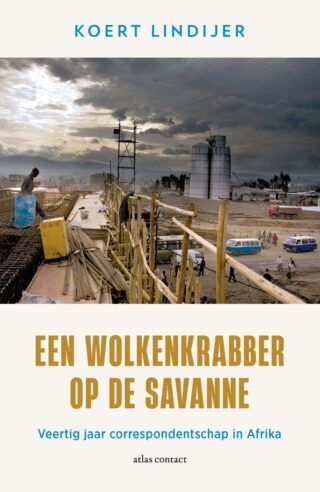Yussuf Ammo Halake lives in Garba Tulla in an area called Prison. “It was once a concentration camp”, he says. “There is a mass grave here of the shifta war in the sixties. At that time we nomads of the Wuasa Boran were dying an invisible death. Now we are living an invisible life”.
Garba Tulla lies on the vast and mainly dry savanna’s of Northern Kenya. The wounds of a vicious war nearly fifty years ago are still open. “Thousands of civilians were killed, we were imprisoned in this area and our cattle was driven away to the highlands”, laments Halake. “That is the way the authorities deal with us nomads in the North”.
The Wuasa Boran blame their present marginalization in Kenya on the war against the government half a century ago. An old man squats under a tree in the main dusty street of the town. He is a nomad dropout, stranded and depended on food aid for more than forty years. “Without cattle there is no life”, he says. “We lost all our cattle in the war, because the government looted them. We became herders without a herd. We can’t take care of each other anymore, our traditional way of looking after each other hardly functions”.
After the political turbulence in 2008 as a result of elections, Kenyans started some soul searching. A Truth, Justice and Reconciliation Commission was set up to investigate many violations of human rights since independence in 1964 under the presidents Jomo Kenyatta and Daniel arap Moi. Massacres with sometimes hundreds of victims took place, often in the far away and isolated north of the country. These scandals were pushed under the carpet. Now the time has arrived for the truth to come out.
The Truth, Justice and Reconciliation Commission also visited Garba Tulla. The members were handed a memorandum by the clan elders written by Halaka. It details mass killings by the government of Kenyatta, rape, and killing of life stock. “These acts could be summarized as war crimes”, says Halake “Many among the Borana are still traumatized about these events. Our plight is still not taken seriously by the government”.
The cattle herders of Northern Kenya always felt separated from the rest of the country. The rebellion against Kenyatta’s government in the highlands started before independence. In a referendum by the British colonialists the inhabitants of the North Eastern province had voted for joining Somalia, but this choice was never implemented. Until 1967 Somalia instigated and supported an armed resistance by Kenyan ethnic Somali’s, who were supported by some of the Wuasa Borana.
The government reaction was brutal. Some Borana’s label it as a scorch earth policy. In these days there were no vocal human rights NGO’s, no protesting foreign governments and no annoyingly free press. Today the Borana still live their nightmares. They feel their past and present is neglected, their area marginalized. “Northern Kenya is like a Siberia”, says Halake, “no government official wants to be stationed here, it is considered a punishment”.
Street children, low rating in national school exams, insecurity, food dependency, all the sign of disruption are visible. Nomadism is in crisis all over Africa, but in Garba Tulla the situation seems dire. The nomads don’t complain so much about lack of food or cattle dying, the first thing on their mind is the insecurity.
Many mini wars have been fought over the years in the North, with the Kenyans in the highlands hardly been aware of it. The breaking down of the traditional system of negotiating access to pasture between the different tribes, and the inability of the modern security forces to keep peace have led to a kind of anarchy. Like during the shifta war the authorities practice collective punishment, clans are being targeted because some members of them are involved in cattle raiding. The government intervenes with bombing nomads or sometimes massacring them.
“The past always repeats itself here”, says Halake. The Borana claim that by taking their cattle the government has taken their way of life, their culture, their confidence and respect. They demand the mass graves to be opened and compensation be paid to the relatives of the victims.

